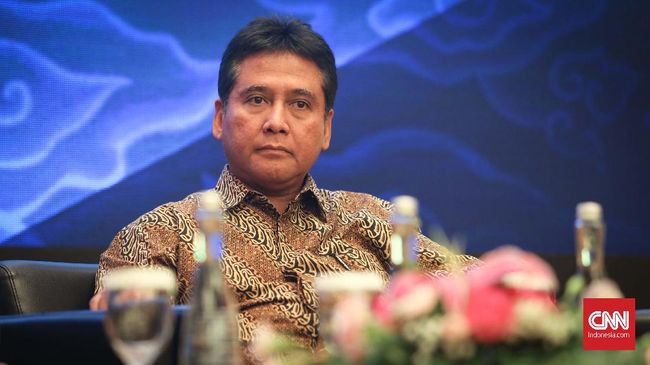Seville yesterday hosted the presentation of the promotional offer at the national level of the Group of World Heritage Cities of Spain (GCPHE) and Paradores de Turismo, with the firm idea of mark a turning point for tourism recovery and the opening of mobility between communities next May, a scenario in which the Group is working hard.
The event was attended by the President of the Group and Mayor of Mérida, Antonio Rodriguez Osuna; the president of Paradores, Oscar Lopez; the mayor of Seville, Juan Espadas; the Deputy Minister of Tourism, Regeneration, Justice and Local Administration of the Junta de Andalucía, Manuel Alejandro Cardente Flores, as well as with the mayors of the three World Heritage Cities of Andalusia: the mayoress of Baeza, Lola marin; the mayor of Córdoba, Jose Maria Bellido, and the mayor of Úbeda, Antonia Olivares.
The president of the Group of World Heritage Cities and Mayor of Mérida, Antonio Rodríguez Osuna, launched “with all caution, a message of hope and optimism to the sector. We cannot be without certainty and we will have certainty with the vaccination schedule throughout Europe and the restrictions adapted to the need to control the pandemic. Taking these parameters into account, we are convinced that the summer, that is, the months of July, August and September and also the remainder of the second semester, will be a good semester of the year for tourism recovery and economic reactivation, if everything continues as planned by the Government of Spain. Obviously, not with the volume of tourists in 2019, but yes to economically recover the damage that has occurred in the first half of the year. We want to send a message of optimism and we are convinced that the tourist who is going to come to our cities will bet on quality services and with greater spending capacity ”.
The president recalled that the Strategic Tourism Plan for the 15 World Heritage Cities, prepared by the consultora Braintrust, confirms this trend: “Our cities offer what that tourist is looking for now: Heritage and sustainable spaces, cultural activities and first-rate gastronomy. Those four factors that the study says they will look for tourists as soon as mobility recoversThe 15 World Heritage Cities have them. We are working with a key date on the table and that is that as of May 9 the State of Alarm declines and, therefore, Heritage Cities have to be prepared for when there is mobility ”.
According to Rodríguez Osuna, “if by that date we have 8 million people in Spain with the vaccine, and they are also people who have suffered a lot because of their age and have lost a year of their lives because of this pandemic, it cannot be that mobility is further reduced. Namely, it would make no sense for 25% or 30% of the population to be vaccinated and they keep being told to stay home. Therefore, the Group of World Heritage Cities is making presentations of our offer for all that population, also taking into account that the average savings in Spain has increased by 35% ”.
The 15 World Heritage Cities, together with Paradores de Turismo, present their offer to operators and professionals in the tourism sector in Seville at a working lunch held at the emblematic Hotel Alfonso XIII. Rodríguez Osuna anticipated that “we are going to launch cultural and tourist initiatives that allow us to reach the main source markets, which will be mainly the national one, but we must not forget that the main source market in Spain is Europe and, in this order, Germany, England and France. That is why we already have another presentation closed on May 13 in Madrid and we will also be in Paris on May 26, with its mayor and the Minister of Tourism, to present our offer to the French market ”.
The mayor of Seville also emphasized that tourism prospects are favorable: “Recovery will come very quickly with the long-awaited vaccine and we must be clear that our destinations are very mature, capable of maintaining national tourism with incredible percentages, such as those reached by Paradores in a year like 2020, ”said Espadas.
The councilor also stated that “the sum is strength and the key is knowing how to use the potential of the group well. World Heritage Cities is an unbeatable brand that walks hand in hand with a network of infrastructures such as Paradores and with the highest seal that can be had, such as that of Unesco ”.
For his part, the president of Paradores, Óscar López, stressed that “this alliance is a perfect tool to fulfill one of the main missions of Paradores: caring for and promoting the cultural and natural heritage of Spain. The agreement allows us both to design products together and to join forces to promote them in Spain and on the international market. Heritage Cities and Paradores we address the same public, one who wants a sustainable tourism, of quality and interested in history, art and gastronomy “.
The Deputy Minister of Tourism, Regeneration, Justice and Local Administration of the Junta de Andalucía, Manuel Alejandro Cardente Flores, valued the heritage wealth of Andalusia, exemplified both in the Heritage Cities (Córdoba, Úbeda and Baeza), as in places such as the Cathedral, the Alcazar and the Archive of the Indies of Seville; The Alhambra, the Generalife and the Albaicín in Granada; and the Dolmens of Antequera.
The Deputy Minister affirmed that the pandemic has been “a turning point and also an opportunity to regenerate tourism, betting on digitization and sustainability and promoting seasonal adjustment.” Finally, he outlined that the Ministry is developing “A tourism portfolio that emphasizes a tourism profile focused on quality and not quantity”, indicated Cardente.
After the presentation at the City Hall, a working lunch was held with professionals from the sector, in which 40 travel agencies and tour operators participated, and that counted on the interventions of the mayor of Seville; the President of the Group, the President of Paradores and its commercial director and also the Secretary General for Tourism of the Junta de Andalucía, as well as the attendance of the mayors of Córdoba, Baeza and Úbeda.
The Group of World Heritage Cities of Spain, which held in 2018 its 25th anniversary, aims to act jointly in the conservation, enhancement and tourism promotion of the 15 Spanish cities recognized by UNESCO as World Heritage Sites: Alcalá de Henares, Ávila, Baeza, Cáceres, Córdoba, Cuenca, Ibiza / Eivissa, Mérida, Salamanca, San Cristóbal de la Laguna, Santiago de Compostela, Segovia, Tarragona, Toledo and Úbeda.
–


